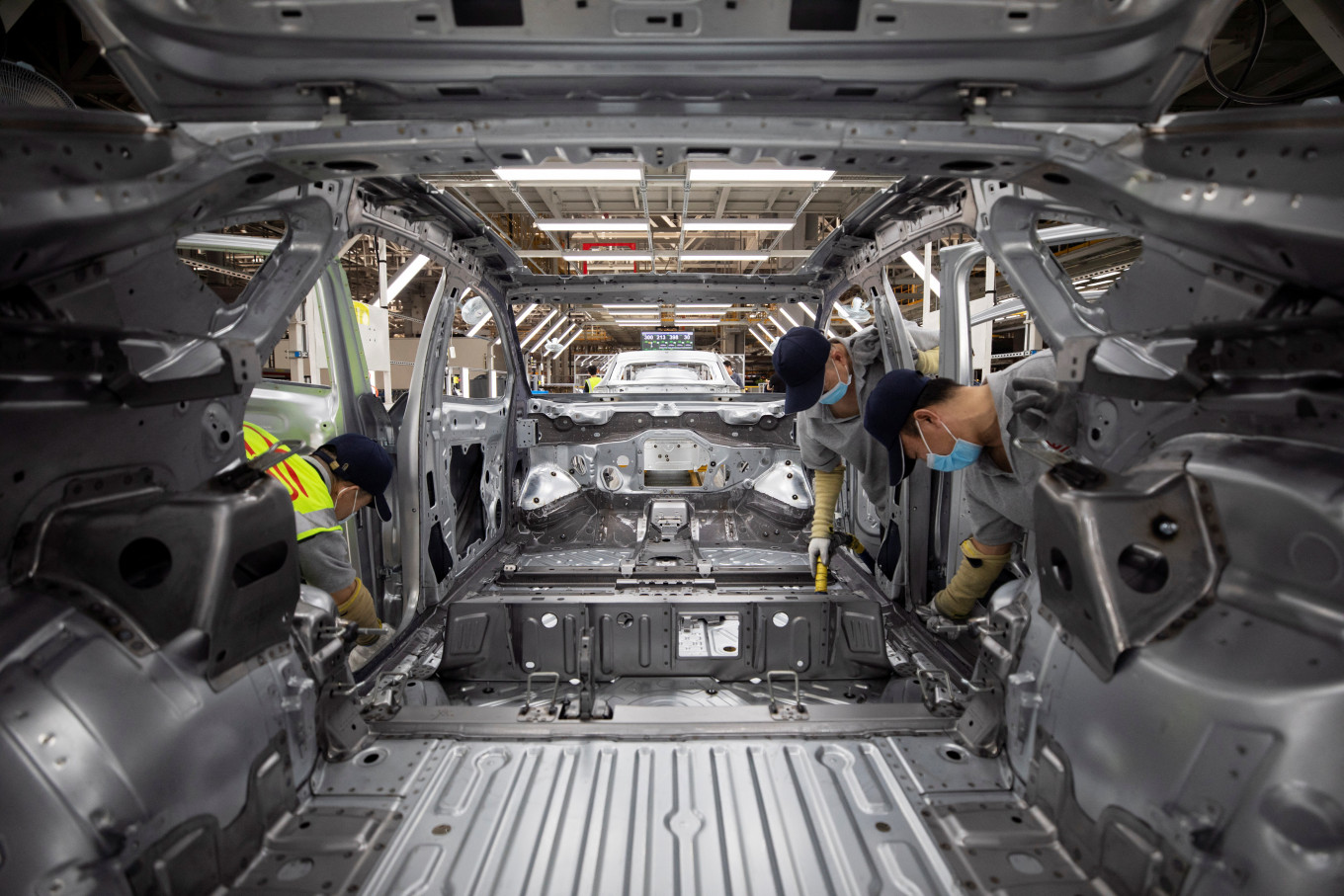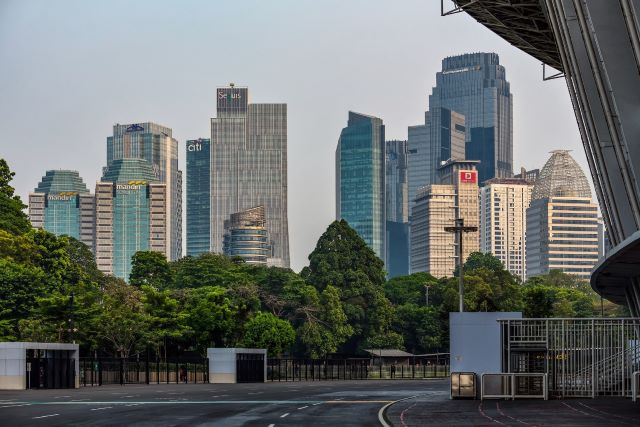Popular Reads
Top Results
Can't find what you're looking for?
View all search resultsPopular Reads
Top Results
Can't find what you're looking for?
View all search resultsEU governments face pivotal vote on Chinese EV tariffs
Change text size
Gift Premium Articles
to Anyone
E
uropean Union members face a pivotal vote on Friday on whether to impose tariffs of up to 45 percent on imports of Chinese-made electric vehicles in the bloc's highest profile trade case, which risks retaliation from Beijing.
The European Commission, which oversees the bloc's trade policy, proposed final duties for the next five years to counter what it sees as unfair Chinese subsidies after a year-long anti-subsidy investigation.
Under EU rules, the Commission can impose the tariffs for the next five years unless a qualified majority of 15 EU countries representing 65 percent of the EU's population votes against the plan.
Reuters reported on Wednesday that France, Greece, Italy and Poland would vote in favor, enough to avert a blocking majority against tariffs.
In the absence of a qualified majority either way, the EU executive can adopt the tariffs. However, it could also submit an amended proposal if it wanted to secure greater backing.
The region's top economy and major car producer, Germany, will vote against the introduction of tariffs, people with knowledge of the matter told Reuters late on Thursday.
German carmakers, for which China represents almost a third of their sales, have been particularly vocal against tariffs. Volkswagen said they were "the wrong approach".
The economy minister in Spain, a previous tariff backer, also said in a letter to European Commission Vice President Valdis Dombrovskis, seen by Reuters on Thursday, that instead of imposing tariffs, the EU should "keep negotiations open [...] beyond the binding vote" to strike a deal on prices as well as the relocation of battery production to the bloc.
Spanish Prime Minister Pedro Sanchez had already said on a visit to China that the EU should reconsider its position.
Some EU members are nervous about Beijing's response. In moves seen as a retaliation, Beijing this year launched its own probes into imports of EU brandy, dairy and pork products.
However, the EU's stance towards Beijing has hardened in the past five years, now viewing China as a potential partner in some issues, but also as a competitor and a systemic rival.
The Commission says China's spare production capacity of 3 million EVs per year, which needed to be exported, is twice the size of the EU market. Given 100 percent tariffs in the United States and Canada, the most obvious outlet for those EVs is Europe.
The EU executive has said it is willing to continue negotiating an alternative to tariffs with China and could re-examine a price undertaking - involving a minimum import price and typically a volume cap - having previously rejected those offered by Chinese companies.
One option under negotiation is minimum import prices calculated using criteria such as the range, battery performance and length of the electric vehicle, along with whether it is two- or four-wheel drive, a source familiar with the matter said.
The tariffs range from 7.8 percent for Tesla to 35.3 percent for SAIC and other companies deemed not to have cooperated with the EU investigation. These tariffs are on top of the EU's standard 10 percent import duty for cars.











